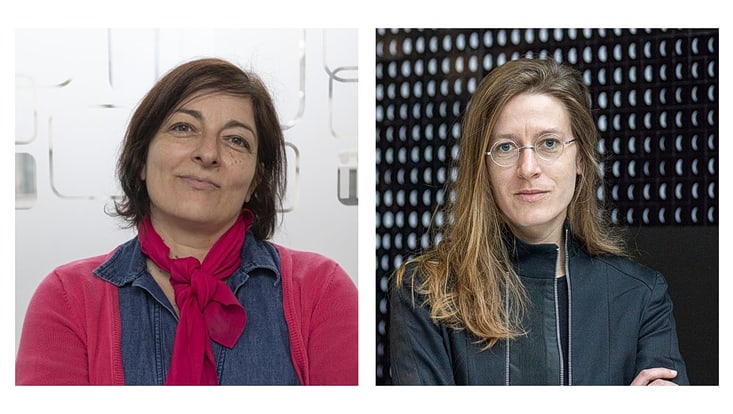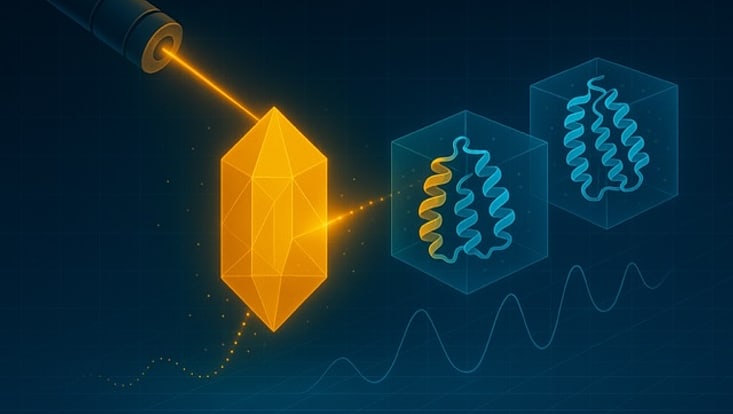and Natural Sciences
Together for food safety
18 April 2018, by Heiko Fuchs
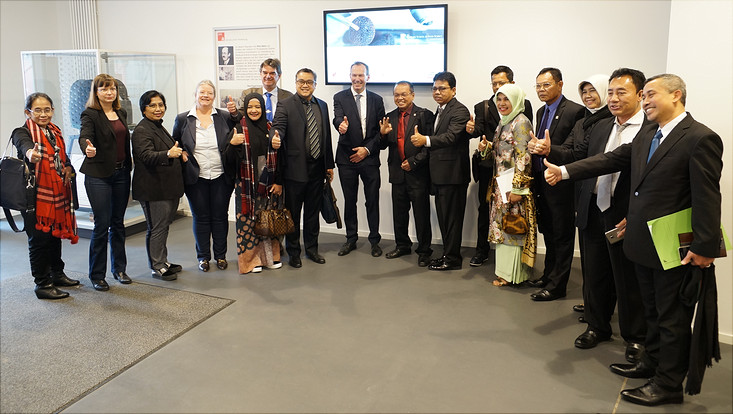
Photo: UHH/MIN/Fuchs
On April 16, 2018, a Delegation from the Health Committee of the Indonesian Parliament visited the Hamburg School of Food Science (HSFS), affiliated to the Department of Chemistry at the University of Hamburg, to learn about the present state of food safety research.
Falsely declared German asparagus, which was not grown in Germany, is a scam, consumers fell for and which is certainly a nuisance in taste and value. Manipulated hazelnut products that have been diluted with peanuts and cashews, however, will have more terrible consequences, e.g. for people with allergies. We all still remember the 2008 melamine scandal that left 300,000 infants in China sick after being fed contaminated milk powder. This case of fraud continues to be felt today, as many Chinese still do not trust domestic products and prefer to buy milk powder from abroad, which leads to a shortage all over the world.
The "Hamburg School of Food Science" at the University of Hamburg is developing new scientific methods to prevent or at least uncover such food scams and scandals. The methods developed by the HSFS not only provide information on product quality, but also provide data on the composition and geographical origin of the food being studied. The long-term goal is a rapid test system, which makes it possible to test products in a simple way within seconds on the spot.
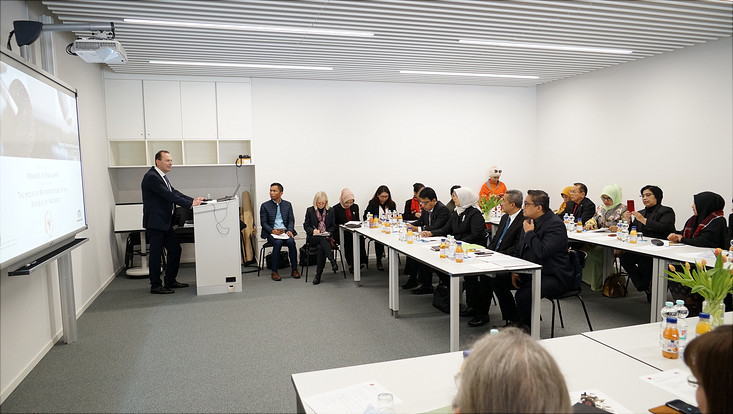
Word has spread around the world that Hamburg scientists at the HSFS are doing a great job in their area of study. Therefore, on April 16, 2018, the Indonesian Consul General and a delegation from the Health Committee of the Indonesian Parliament visited the HSFS. The visit was motivated by the exchange of experience on the draft of a new Indonesian law on the safety and control of food, pharmaceuticals and cosmetic products. A short presentation was given on methods and possibilities of the HSFS research followed by a lively discussion. In addition, the delegation visited several laboratories. The visitors' interest focused on food and quality control, the scientific and technological development of food safety in Germany, the transfer of technology and knowledge as well as the communication between science and politics.
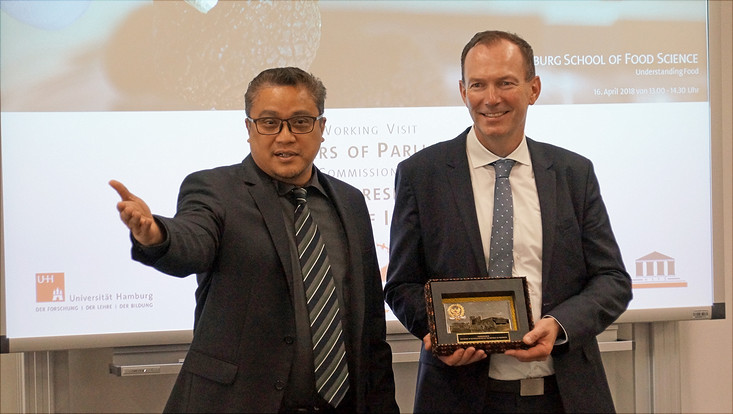
"Food safety and food fraud affect all types of products and all regions of the world", Professor Fischer of the HSFS emphasized in his lecture. All participants agreed on this future task, which will be best solved mutually with other institutions or nations.
As an actual result of the workshop in Hamburg, an academic exchange program for food safety in the areas of research and teaching was suggested.

